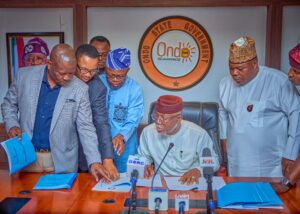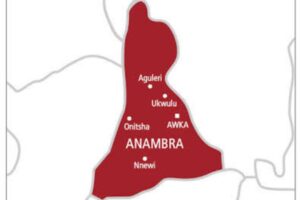OPINION: UNRAVELLING THE GREY AREAS IN TAX MATTERS BY KAZEEM SHAMSUDEEN
Tax is one important lever of the economy because it is a tool for both Economic growth and development. It is the fulcrum of the fiscal policy framework used to grow the economy by raising Government revenues deployed for both Capital and Recurrent spendings in order to expand gross and net output. In order to lessen inequality which is an index of Economic development, tax can be levied at a progressive rates to bridge the income gap between the higher income class and the lowest income class. Tax is so important that the whole National fabric is dependent on it. In 1899, the Supreme Court of the United States of America in NICHOLAS V AMES (173 US 509 (1899) at P. 515 underscores this importance when it held that “ Taxation is one great power upon which the whole National Fabric is based. It is as necessary to the existence and prosperity of a Natural man , it is not only the power to destroy, it is also the power to keep alive”
Tax therefore, is a compulsory contribution to the support of government levied on persons, incomes ,commodities, property, transactions and so on at a fixed rate most appropriate to the amount on which the contribution is levied. It is a compulsory exaction of money by a public authority for Public purposes. Because it is compulsory, therefore it must have statutory flavour so that it can successfully be administered with lesser rancor. As a result, tax is one area of our National life where we have multiplicity of statutes to regulate its administration . Tax administration deal substantially with regulatory laws, regulatory bodies administering tax laws, experts and consultants on tax matters. Tax administration is the process of assessing and collecting taxes from individuals and companies by relevant tax authorities ; in such a way that the correct amount assessed is collected efficiently and effectively with minimum tax avoidance or tax evasion.
Several laws deal with taxes In Nigeria depending on the nature of the tax, taxable persons and the authorities. Some laws deal with individual tax payers like Personal Income Tax Act (PITA), others are concerned with Companies and Corporate institutions like Company Income Tax Act(CITA). There are some that specifically deal with goods and services purchased like Value Added Tax Act , Petroleum Profit Tax Act(PPTA) , Casino Taxation Act(CTA), Stamp Duties Act (STA) etc while few others established authorities that are concerned with Tax . Examples are Federal Inland Revenue(Establishment) Act, State Board of Internal Revenue, Tertiary Education Trust Fund (Establishment)Act(2011) etc. While Federal Inland Revenue Service (FIRS) collects taxes for Federal Government, the State Boards of Internal Revenue collect taxes for the states and Local Government Revenue Committee collects fines and rates under its jurisdiction. Section 85d(1) of Personal Income Tax Act established Local Government Revenue Committee.
WHAT TO DO IF YOU WANT TO PAY YOUR TAX
There are many decisions that must be taken before you can successfully pay your tax. First, you have to provide answers to several questions in order to streamline the cumbersome process. The first question you must answer is which tax is applicable? There are a whole lot of taxes imposed on a person both direct and indirect. Example is Value Added Tax(VAT). This is an indirect method of taxation whereby tax is levied at each stage of production on the value added at that specific stage. To find out those goods and services available under a VAT regime, you must consult the Value Added Tax Act. It is important to note that an individual should worry less about how to pay VAT because it is an indirect tax devoid of all the procedural nitty gritty of tax. Once you pay for the goods or the services, you have Paid your VAT. In turn, the providers will remit the tax to the appropriate agency.
Another example is Personal Income Tax. This is the tax levied on the income of individuals, families, communities, trustees, executors and itinerant workers. See section 1 of the Personal Income Tax AcT (PITA). Under the PITA, tax is only to be paid on Chargeable income and not on the Total income. Also, some incomes are exempted from tax.. For an individual, if you get compensation for job losses, it is exempted from tax under the new Finance Bill except if it exceeds #10 million naira, Prior to the introduction of the new Finance Act , dividends from oil companies was exempted from tax but now it is a taxable income. Let us assume you want to pay personal income tax, the next question you must answer is; to whom do you pay? Personal income tax is to be paid to the region where you derive your income except for an itinerant worker. An itinerant worker is a person who derives income from more than one state. He may pay tax to the state of his current residency subject to allowance in respect of income tax paid in the other state. The individual tax payer must be resident in the year of assessment in a relevant state. So if you reside in Ondo state for instance, you pay your income tax to Ondo State Internal Revenue Service (OSIR). For a person employed to the services of the Nigerian Armed Forces( Army, Navy and air force) or Police Force order than in a civilian capacity, officers of Nigerian Foreign Mission, a person resident outside Nigeria who derives income or profit in Nigeria or a person resident in FCT,Abuja, they all pay to Federal Inland Revenue Service (FIRS).
The next question is how to determine your tax liability? This is usually done by what we call tax assessment. For personal income tax ,there is allowance for self assessment. You do this by adding your tax reliefs together with all allowable expenses and subtract it from your total income to arrive at your chargeable income. After that, you will then apply the tax rates contained in the 6th schedule to the Personal Income Tax Act. After applying the tax rates, you will arrive at your tax liability which you will now remit to the appropriate authority. Finally, over the years , the principles and practice of taxation in Nigeria has been shrouded in some kind of corporate mystery. Due to this, the layman is at the receiving end of taxation policies by government and he knows very little or nothing about the basic principles guiding the law of taxation and the policy behind those principles. Please find time to learn or consult a Tax expert.
KAZEEM SHAMSUDEEN
08075942050
POLICY ANALYST,SOCIAL CRUSADER AND A RADICAL PROGRESSIVE












Post Comment